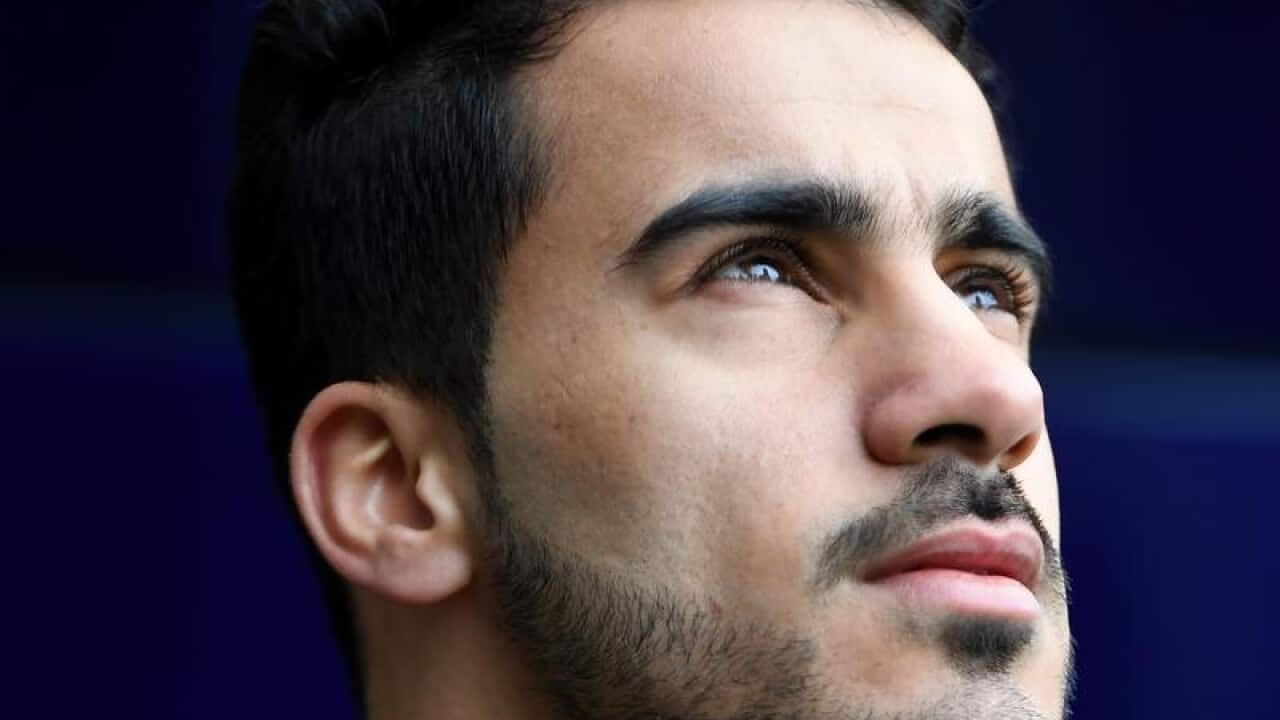The Australian Federal Police has revealed it will review its handling of sensitive investigations amid pressure from media companies over its raiding of journalists' homes and offices.
AFP head Reece Kershaw disclosed the investigation during Senate Estimates, where he was repeatedly questioned by Labor’s Kristina Keneally over its perceived attacks on press freedom.
Major media companies blacked out their front pages on Monday in a campaign against censorship and called for increased transparency from the federal government. Mr Kershaw – who became AFP commissioner just 19 days ago - was questioned about the wavering public faith in press freedom, being brought to attention in the Right to Know campaign.
Mr Kershaw – who became AFP commissioner just 19 days ago - was questioned about the wavering public faith in press freedom, being brought to attention in the Right to Know campaign.

Labor Senator Kristina Keneally holds copies of Monday's newspaper front pages at a Senate Estimates. Source: AAP
“Anything strike you as similar in all of those front pages?” Senator Keneally asked the AFP commissioner.
“It looks like someone has put a black marker through whatever was on there,” he replied.
Senator Keneally pressed further, asking Mr Kershaw if he understood "what has sparked" the newspapers' campaign against censorship.
“I haven’t even turned my mind to that,” Mr Kershaw replied.
“I would have to ask the editors that question, which is what I normally would do to form my own views.”
Concerns for press freedom were triggered following police raids on the home of a News Corp journalist Annika Smethurst and the Sydney offices of the ABC.
The raids were part of criminal investigations into stories based on leaked government information.
In an opening statement, Mr Kershaw took a "brief moment' to address freedom of the press in Australia.
“Police independence and freedom of the press are both fundamental pillars that coexist in our democracy,” he told the committee.
“I strongly believe in these two pillars.”
He wants an upcoming review to "better inform" how the AFP handles cases of sensitive information disclosure, asking John Lawler, the former head of the Australian Crime Commission, to conduct the external investigation.
“The review will not be an audit into the current matters at hand but rather a holistic approach to ensure that we have in place investigative, policy and guidelines that are fit for purpose,” he said.
Senator Keneally asserted the AFP’s raids on Ms Smethurst home and the offices of the ABC had triggered public fears over these matters
“Do you think that is a fair characterisation of what sparked the current debate in Australia over media freedom?” she asked.
“Again if I’m going to answer that question I’d like to actually ask the editors if that’s actually the reason behind that,” Mr Kershaw replied. The AFP Commissioner said he had not yet spoken to representatives media companies about their concerns but promised intended to do so.
The AFP Commissioner said he had not yet spoken to representatives media companies about their concerns but promised intended to do so.

Minister for Foreign Affairs Marise Payne and Australian Federal Police AFP Commissioner Reece Kershaw appearing before a Senate Estimates. Source: AAP
“I will be meeting with the right people at the right time,” he said.
“Over the next few weeks, I’ll be talking to the media.”
Mr Kershaw also recognised steps taken by Attorney-General Christian Porter meaning that no journalist could be charged for reporting on national security matters unless the nation's top lawyer signs off on it.
"The Attorney General's direction reaffirms the importance of the AFP to thoroughly investigate these matters," he said.
"Collect all relevant information and evidence to ensure the Attorney-General ... can make a fully-informed decision where relevant."
The Morrison government has said it is committed to striking a balance between press freedom and national security needs.
Mr Kershaw was asked if the AFP planned to conduct further raids on media outlets or journalists’ homes.
“Not that I know of,” he said.
“But it’s something that we’d obviously be having a look at.”



